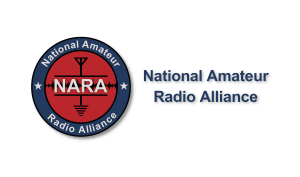The Japanese manufacturer whose name was on handheld radios that exploded in Lebanon said Thursday that it had discontinued the device a decade ago and was investigating what happened.
The company, Icom, a telecommunications equipment maker based in Osaka, Japan, had shipped IC-V82 transceivers — the model whose name is seen on radios in photos and a video of the aftermath of Wednesday’s attacks — to overseas markets, including the Middle East, from 2004 to October 2014.
Icom said in a statement Thursday that it had not shipped any of the IC-V82 radios from its plant in Wakayama, Japan, in roughly a decade. But the company has long warned of what it called a surge in counterfeit IC-V82 transceivers.
At least 20 people were killed and more than 450 wounded when walkie-talkies owned by Hezbollah members exploded across Lebanon. It was unclear where Hezbollah purchased the devices that exploded.
Icom, founded in 1954, sells radios and other products in more than 80 countries and has about 1,000 employees. According to the company, it has supplied electronics gear to public safety organizations and the U.S. Department of Defense and Marine Corps.
Icom said it has no inventory of the IC-V82 model and has issued warnings saying that “almost all” IC-V82 radios available for purchase are counterfeit. Icom said it has taken legal action against counterfeit manufacturers and has warned about fake models since at least 2020.
A day before the radio explosions, blasts from pagers killed at least 12 people and wounded over 2,700 others in Lebanon. Israel has neither confirmed nor denied any role in the explosions, but 12 current and former defense and intelligence officials briefed on the attack say the Israelis were behind it.
Companies that make two-way radios say the devices typically have a life span of about five to seven years, though that can depend on their usage.
“Copies of these models are floating in the market,” Icom has said in warnings posted online. Authentic products have a hologram label that says “Icom” and “genuine,” according to the company.
Icom said on Thursday that because the devices that exploded in Lebanon were not fixed with the counterfeit-prevention sticker, it was not possible to confirm whether they had originated with the company. The company declined to specify how it determined that the radios did not have the label.
Icom said it sells products only to authorized distributors and that it upholds strict export controls based on regulations set by Japan’s economy ministry. The company said it would continue to provide updates when it receives new information.
Counterfeit versions of the radios are at risk of catching fire or exploding because of battery malfunctions, Icom said. Many are labeled “made in China,” according to Icom. The company said that all of its radios are produced at factories in Japan.
At least two vendors on Taobao, a Chinese e-commerce marketplace, were selling on Thursday what they said were Icom IC-V82 walkie-talkies, one for $32 apiece and the other for $34. Three vendors were selling what was listed as the Icom walkie-talkie on another Chinese e-commerce platform, JD.com, and quoted prices of $35, $55 and $104.
via the New York Times: https://www.nytimes.com/2024/09/19/business/icom-walkie-talkies-lebanon.html








More Stories
via Amateur Radio Daily: NARA Hosts Club Week Special Event
via the ARRL: Ham Radio Operators to Support Indian Ocean Tsunami Exercise
via the ARRL: 2026 ARRL Foundation Scholarship Program is Now Accepting Applications